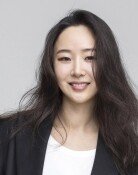[Opinion] Being the Originator, Being the Real One
[Opinion] Being the Originator, Being the Real One
Posted October. 29, 2004 12:06,
Koreans obsess over being the wonjo (wonjo means originator in Korean). When we go to Jangchung-dong, Seoul, where pork hock restaurants are crowded, we see so many signboards saying wonjo all around the area. Each restaurant insists they are the original pork hock restaurant, with words on the signboards such as: Wonjo, Jinzza Wonjo (meaning real originator), Wonjo of Wonjos (Originator of Originators), the house seen on TV, and No. 1 Restaurant. Pride over being the original in every region with its own special food is very competitive. Signs advertising a particular Yokjaengi House (meaning abusive grandmas house in English) and Grandmas House are common around the country, and that is a wonjo controversy too. Are there really that many abusive grandmas?
Recently, the controversy over wonjo in regions has expanded into the one of local governments. A controversy for the wonjo of big crabs between Yeongduk-gun and Woojin-gun in Gyeonbuk, a confrontation for the birthplace of poet Cheongma Yoo Chi-wan between Tongyeong and Geoje in Gyeongnam, a debate over background of the folktale Byeoljubujeon between Taean, Chungnam and Sacheon, Gyeongnam, and an argument over the birthplace of Eugi Nongae (a Kisaeng who was famous for her constancy in the Joseon Dynasty) between Jinju, Gyeongnam and Jangseong, Jeonnam. Of course, even though one makes a claim with a signboard declaring one the wonjo, it does not guarantee one place or the other is the real originator. They could be the real originator, close to the originator, or not the originator at all.
Five hundred members of a Korean Confucian group recently visited Confuciuss homeland in Shandong, China and held an ancestral rite in honor of Confucius at the Confucius temple in Qufu. The rite was said to have been held under the same procedures as the Seokjeondaeje, which is held in grand style at the Sungkyunkwan in Korea every March and September. However, there are actually no such rituals in China. During the Cultural Revolution, Confucius was denounced as a symbol of feudalism and all memorials concerning him were destroyed. When Chinese scholars visited Sungkyunkwan Seokjeon during the 1980s, they were amazed at the fact that the ritual memorials that have disappeared even in its place of origin are preserved here.
This does not only apply to ancestral rites held for Confucius. In Israel, Jesus is treated as one of the prophets, but in Korea, Jesus has become the eternal savior of humanity. The practice of ascetic exercises with meditation in Buddhism has also far surpassed that of its birthplace in India and even China. In North Korea, Communism remains to this day in a stricter and more severe form than in its birthplace, the Soviet Union, and its biggest recipient, China. Would it be too much to say that the originator consciousness of the Koreans has reached the point of fundamentalism?
Oh Myung-chul, Editorial Writer, oscar@donga.com
Headline News
- Med professors announce intention to leave hospitals starting Thursday
- Bridge honoring Sgt. Moon Jae-sik unveiled in Pennsylvania
- Chief of Staff Chung tells presidential secretaries to stay away from politics
- US FTC bans noncompete agreements
- N. Korea launches cyberattacks on S. Korea's defense companies







